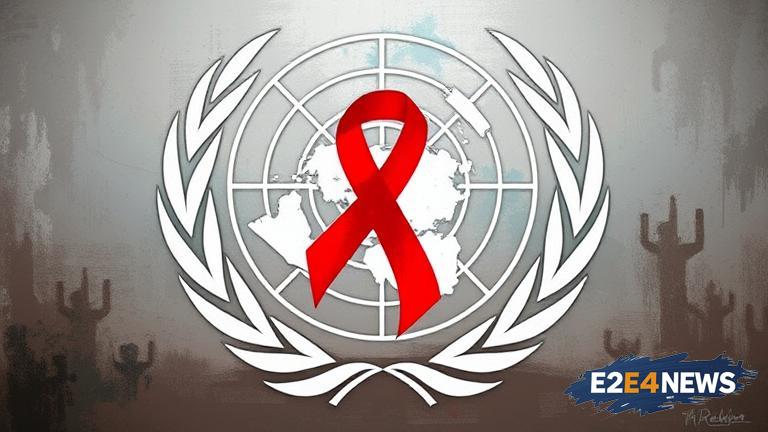The United Nations has issued a stark warning that millions of people will die from HIV-related illnesses by 2029 if the United States does not increase its funding for HIV programs. According to the UN, the current level of funding is insufficient to meet the growing needs of people living with HIV, particularly in low- and middle-income countries. The warning comes as the world marks the 40th anniversary of the discovery of the HIV virus. Despite significant progress in the fight against HIV, the UN notes that the epidemic is still raging, with over 38 million people living with the virus worldwide. The majority of these individuals are in sub-Saharan Africa, where access to antiretroviral therapy and other essential services is often limited. The UN estimates that if funding for HIV programs is not increased, millions of people will die from HIV-related illnesses, including tuberculosis, which is a leading cause of death among people living with HIV. The warning is particularly dire for young women and girls, who are disproportionately affected by the epidemic. In some countries, young women are up to 14 times more likely to contract HIV than their male counterparts. The UN is calling on the US government to increase its funding for HIV programs, including the President’s Emergency Plan for AIDS Relief (PEPFAR) and the Global Fund to Fight AIDS, Tuberculosis and Malaria. The organization notes that every dollar invested in HIV programs generates a significant return, including improved health outcomes, increased economic productivity, and reduced poverty. However, the current level of funding is not sufficient to meet the growing needs of people living with HIV, and the UN warns that the consequences of inaction will be catastrophic. The warning has been echoed by other global health organizations, including the World Health Organization and the Joint United Nations Programme on HIV/AIDS (UNAIDS). These organizations note that the fight against HIV is at a critical juncture, and that increased funding is essential to achieving the goal of ending the epidemic by 2030. The US government has been a major contributor to global HIV efforts, but the UN warns that more needs to be done to address the scale and complexity of the epidemic. The warning comes as the world prepares to mark World AIDS Day, which is observed on December 1st every year. The theme of this year’s World AIDS Day is ‘Equalize’, which highlights the need to address the disparities and inequalities that drive the HIV epidemic. The UN notes that the fight against HIV is not just a health issue, but also a matter of social justice and human rights. By increasing funding for HIV programs, the US government can help to ensure that all people, regardless of their background or circumstances, have access to the services and support they need to live healthy and fulfilling lives.
